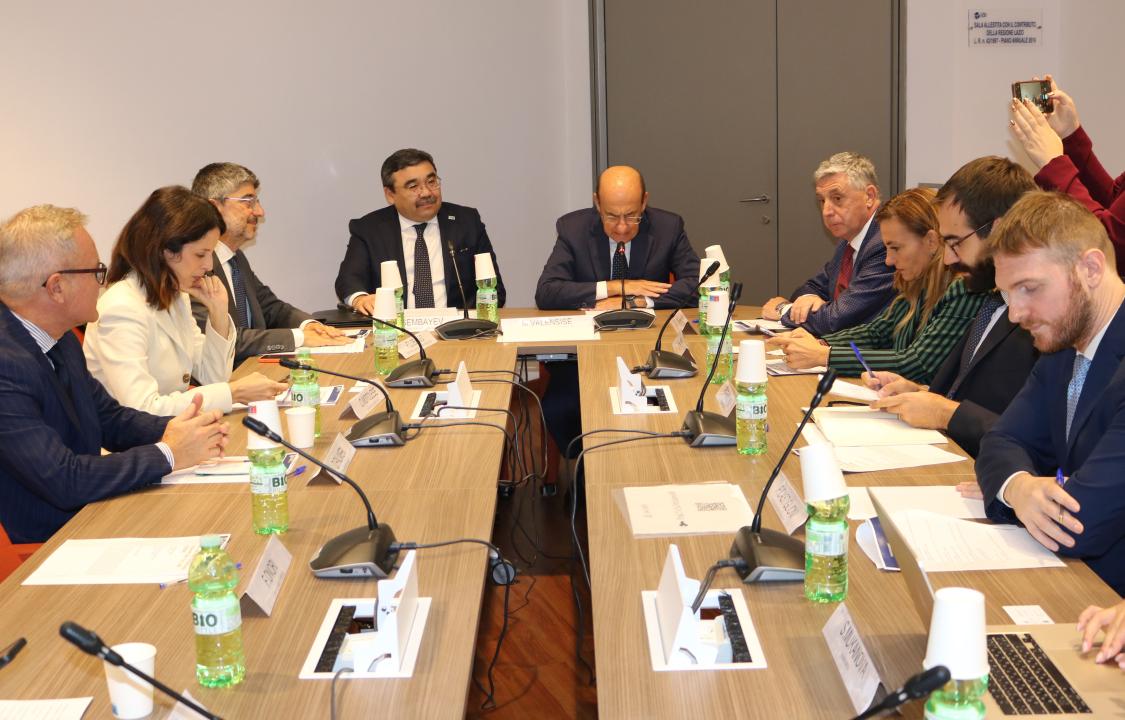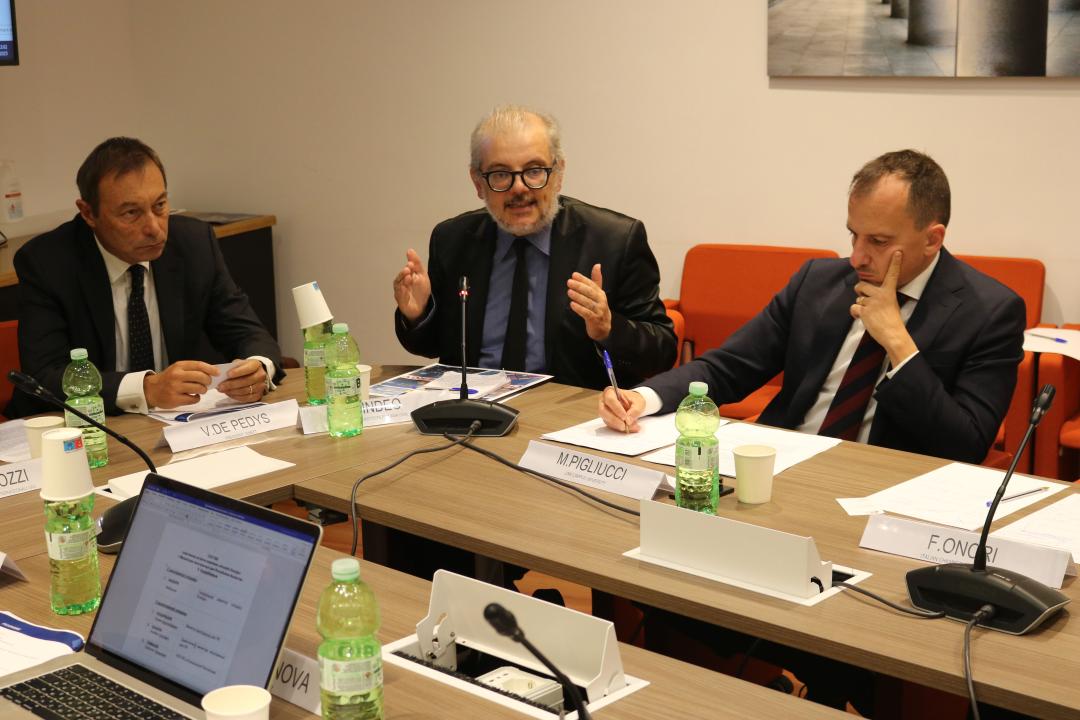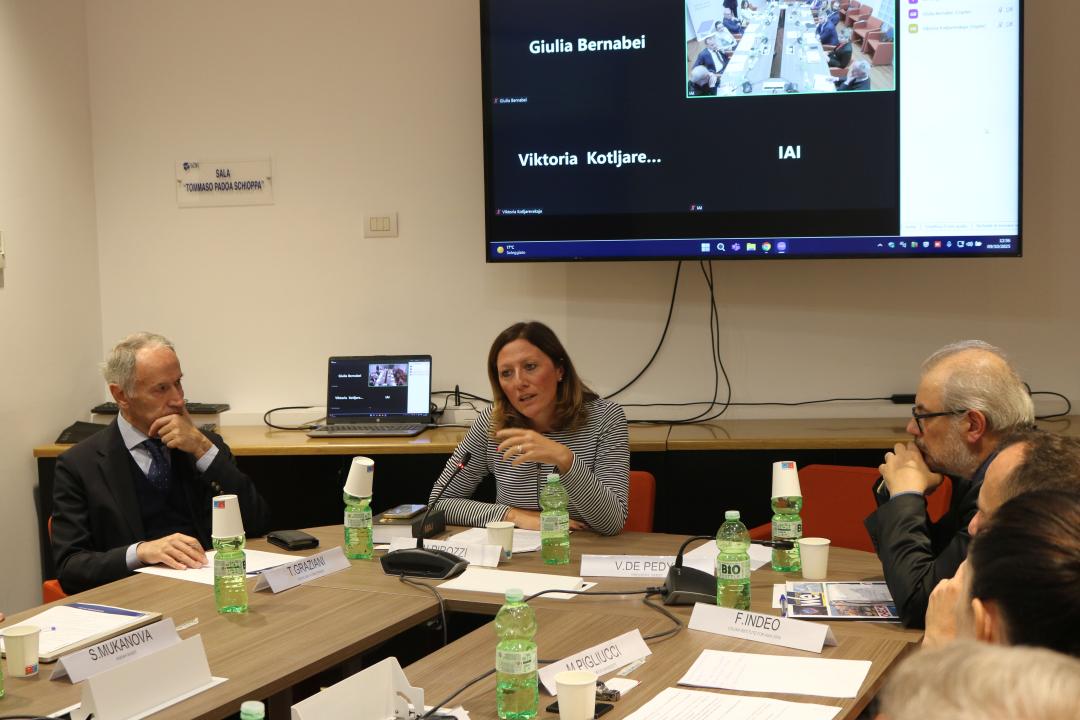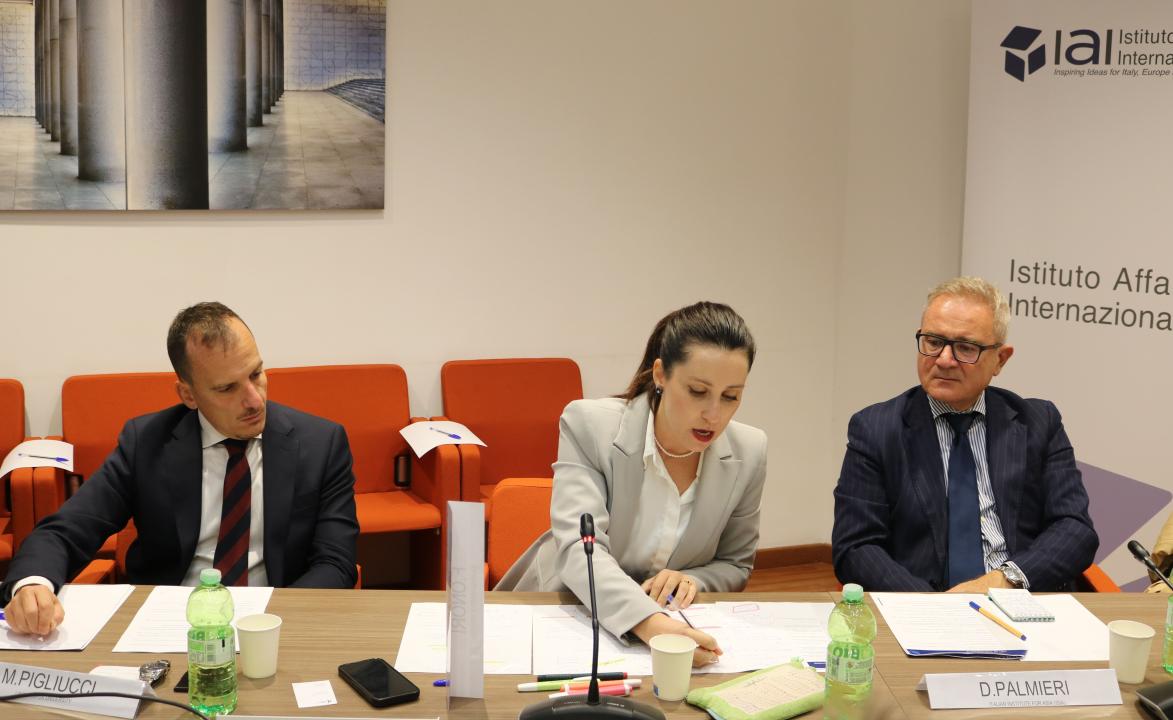The Role of Kazakhstan in Central Asia was Discussed at a Leading Italian Think Tank, DKNews.kz reports.
The Institute of International Affairs, one of Italy’s largest think tanks, hosted a roundtable discussion titled “Old and New Crossroads: Kazakhstan, Italy and Europe”. The event focused on reforms in Kazakhstan, its role in Central Asia, and the challenges and opportunities in cooperation with Italy and the European Union. Members of parliament, representatives of the Italian Foreign Ministry, think tank experts, university professors, and others took part.
Opening the event, President of the Institute of International Affairs Michele Valensise noted that President Kassym-Jomart Tokayev’s initiative to build a “New Kazakhstan” creates all the conditions for expanding cooperation and opens broad prospects for joint projects in various fields, including energy, agriculture, and new technologies – not only with Italy but also within the EU framework.

Ambassador of Kazakhstan to Italy, Yerbolat Sembayev, provided participants with a detailed overview of reforms in Kazakhstan, outlined the main provisions of the recent Presidential Address to the Nation, and highlighted issues of bilateral cooperation as well as interaction with the EU.
“Today, Kazakhstan is undergoing unprecedentedly large-scale political and economic transformations. The political reform program, aimed at modernization and consistent democratization of society, opens a new stage of development for our country,” he said.
He also familiarised Italian political and expert circles with the key initiatives put forward by President Tokayev in his Address, stressing that their primary goal is to further strengthen the institutional foundations of Kazakhstan’s political system.
“The Head of State has presented an ambitious reform programme focused on digital transformation, modernisation of the investment framework, and institutional change. One of the key elements of the Address is the task of strengthening Kazakhstan’s role as a vital ‘bridge’ between Europe and Asia,” the diplomat emphasized.
Deputy Director General for the Promotion of Italy at the Ministry of Foreign Affairs and International Cooperation of the Italian Republic, Fabrizio Lobasso, speaking at the event, underlined that Italy attaches great importance to the “Italy + Central Asia” initiative, which offers opportunities to deepen partnerships with the countries of the region. As for bilateral cooperation, he noted that Italy could play an active role in diversifying Kazakhstan’s economy by implementing joint projects in areas such as energy, renewables, agriculture, and more.

According to Michele Pigliucci, Professor at Rome’s “Link Campus” University, Kazakhstan occupies an important geopolitical position in the region. The political reforms underway in the country create favourable conditions for domestic development and enable it to achieve positive results in foreign policy.
“Thanks to its geographic position, Kazakhstan is a strategic crossroads connecting Europe, China, and Russia. Given this, Kazakhstan aims to become a central player in a multipolar world, strengthening its regional influence as a logistics hub, energy supplier, and source of critical materials,” stressed Pigliucci. He added that institutional reforms, the transformation of Kazakhstan into a presidential-parliamentary state, and the creation of a system of checks and balances could become key factors for both internal stability and foreign policy success.

Fabio Indeo, an expert at the Italian Institute for the Study of Asia, noted that Kazakhstan, through its effective use of connectivity policies, makes an important contribution to regional integration.
“Thanks to political stability, rich energy resources, and the potential of renewables and green hydrogen, global players view Kazakhstan as a key partner for developing cooperation in Central Asia. Kazakhstan has also adopted a pragmatic approach to Afghanistan, seeing it not only through a security lens but also as a potential trade and logistics hub in the region,” emphasized Indeo.

Other speakers at the roundtable included Member of the Italian Chamber of Deputies Federica Onori, Institute of International Affairs experts Federico Castiglioni, Pierpaolo Raimondi, and Nicoletta Pirozzi, CEO of SIMEST Vittorio De Pedys, and ENI representative Victoria Kotlyarevskaya.
Madiyar Sultanbek, Deputy Chairman of “Kazakh Invest” National Company, delivered an online presentation on Kazakhstan’s role in the development of the Trans-Caspian International Transport Route.







